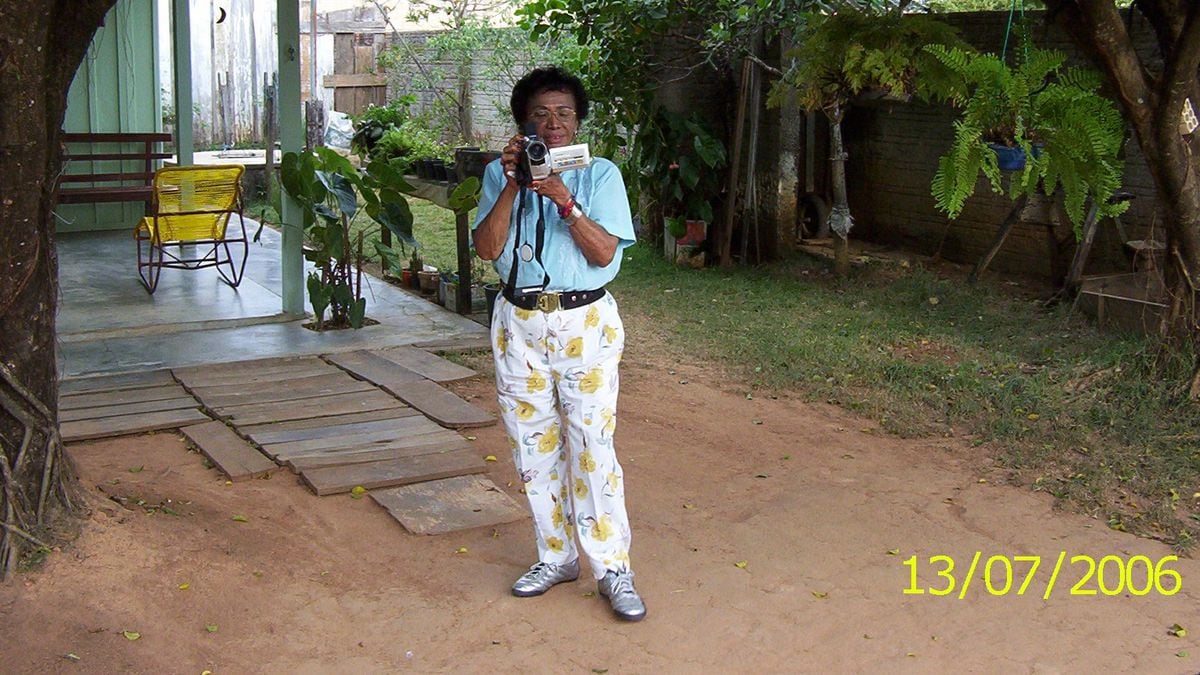Mrs. Joana Zeferino da Paz, a principled and resourceful Brazilian, was an exemplary citizen.
Her true identity was only known this Thursday, when she passed away at the age of 97.
She was carefully preserved for nearly two decades to protect her from the drug dealers and corrupt cops she denounced.
Fed up with the dealings under her house, in a favela next to Copacabana beach, in Rio de Janeiro, she went to the police and the judges.
She was of no use.
So, turning 80, she adopted a new strategy: videotape what she saw from the window.
One day in 2004, she showed up at the police station with a handful of VHS tapes that, over time, found their way into the hands of reporter Fábio Gusmão, from the newspaper
Extra .
from the Globo group.
He revealed in a report the extraordinary story of Dona Vitória, the pseudonym with which he became famous throughout Brazil.
He was also in charge of now reporting her death and bringing her real name to light.
“She changed the history of Rio de Janeiro when, with her courage, she decided to confront the drug traffic that she saw under her window,” says journalist Gusmão in a video that accompanies the news that the former masseuse died in a public hospital. from Salvador de Bahia after suffering a stroke.
The reporter took pains to ensure that, after her death, the courage and sacrifice of the Brazilian were recognized because, he writes, "his desire for her was to have public recognition."
Dona Vitória records through her window in an undated photograph. Fábio Guimarães (O Globo)
Gusmão recounts in his chronicle that, given the indifference of the authorities, Mrs. Da Paz decided to buy the Panasonic video camera, in installments, in 12 payments, the closest thing at the beginning of the century to a cell phone with a camera.
Stealthily, she was recording what resulted in a visual diary of the routine at a drug outlet.
It showed the dealing, the daily coexistence between criminals (boys in swimsuits and flip-flops armed with guns or rifles and corrupt cops) below in his alley in the Ladeira dos Tabajaras neighborhood, one kilometer from the sea that bathes Copacabana, the most famous beach in Brazil .
Videos of her were instrumental in convicting about thirty criminals, including nine military police officers who received bribes in exchange for looking the other way.
With the police operations over and her under the protection of the authorities, in August 2005 the newspaper Extra told her story in a special supplement.
She was then baptized as Dona Vitória.
By handing over the tapes to a police commissioner and starring in that first report, Da Paz had to radically change his life for protection.
He sold the apartment in which he had lived for almost half his life, left Rio de Janeiro and entered an official witness protection program where he spent several months before several moves with relatives and rebuilding his life in another part of the world. country, in Bahia.
There he lived his last years.
Mrs. Da Paz knocked on several doors in the public administration before being forced to record the videos so that someone would attend to her pleas.
Since the police did not lift a finger in the face of her complaints, she went to court to denounce the authorities because the sale of drugs diminished the value of her apartment.
It didn't work either.
One of the police officers who testified questioned those allegations, praised the work of his colleagues and demanded evidence.
That's where the idea for the camera came from.
Dona Vitoria puts tape in her camcorder, on July 13, 2006.Fábio Gusmão (O Globo)
The journalist Gusmão found out about the existence of the tapes during one of his rounds around the police stations in search of news for the weekend.
A commissioner told him that a lady had shown up with hours and hours of recordings.
Gusmão first needed to get the inspector in charge of the police station to allow him to see them.
He hallucinated.
Then he met her pensioner and for months he negotiated with her to agree to leave her and get to safety before publication.
The recorded scenes were routine, but what for the journalist distinguished them from what any carioca knows —because they have seen it or been told about it— were the author's comments, in which her impotence in the face of drug trafficking was evident. , who was ruining his life, those of his neighbors and his neighborhood.
The journalist wrote a book about her.
And Globo has just announced that her fascinating story will be turned into a movie.
The one chosen to play the masseuse is one of the most acclaimed actresses in Brazil, Fernanda Montenegro, who is white and in the film she will be called Josefina, not Joana.
The newspaper
O Globo
reports in its Friday edition that Mrs. da Paz's favela is still strategic for the drug traffickers and that it is still under the control of the same traffickers as 17 years ago.
That's the bad new.
The good news is that the energetic old woman has rebuilt her life in Salvador.
She made friends among her new neighbors, whom she invited to cake.
Joana Zeferino da Paz, an exemplary citizen of Rio, liked to dance.
Subscribe here to the EL PAÍS America newsletter and receive all the latest news in the region.

